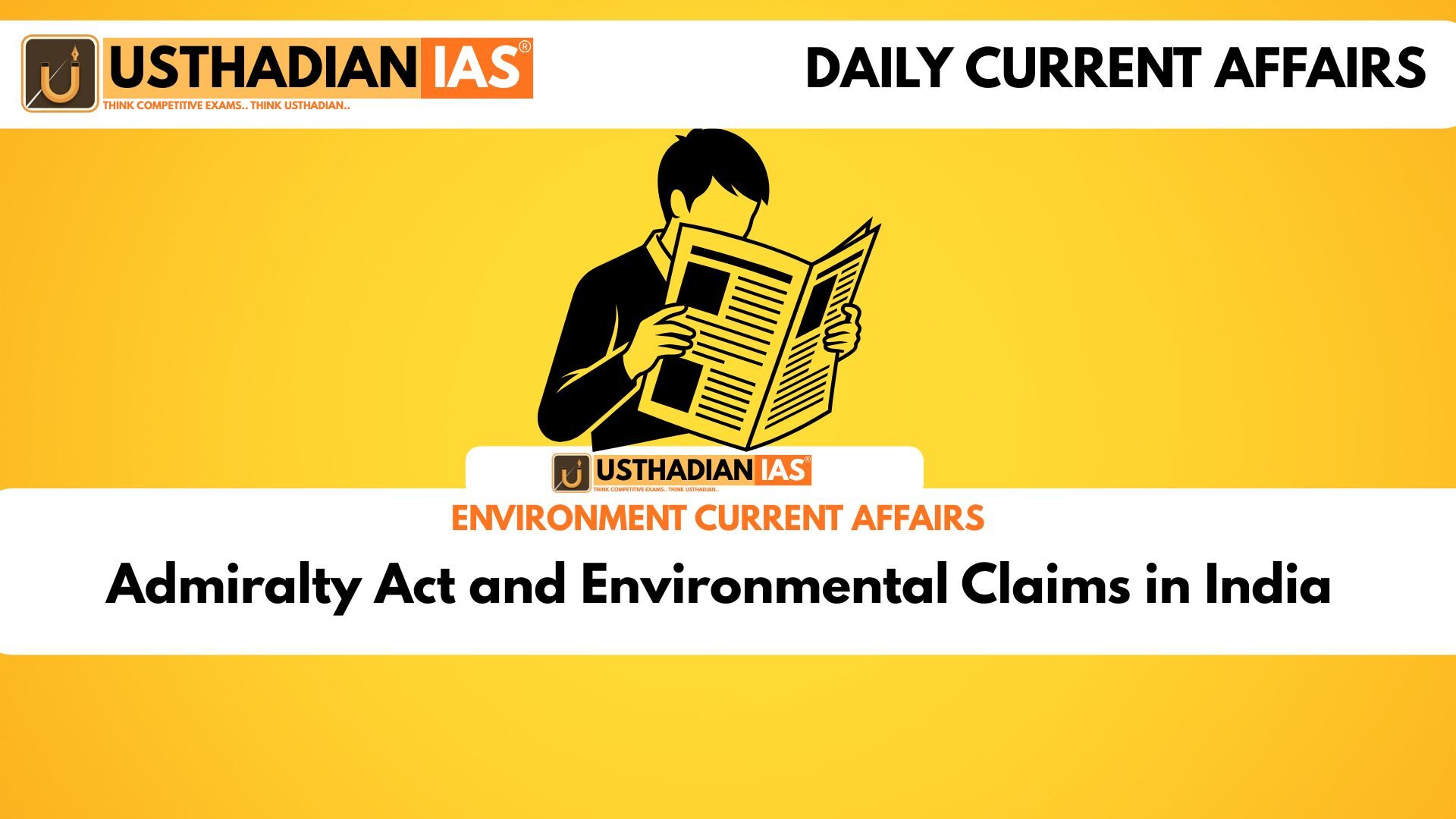Kerala invokes Admiralty Act
Admiralty Act and Environmental Claims in India: In a recent development, the Kerala government has invoked the Admiralty (Jurisdiction and Settlement of Maritime Claims) Act, 2017 to seek compensation for environmental damage caused by a shipwreck. This case highlights the growing use of maritime law to enforce environmental accountability.
What the Admiralty Act covers
The Admiralty Act, 2017, provides a legal framework to handle various maritime disputes. It applies to all vessels, regardless of the owner’s residence or nationality. The Act modernizes India’s approach to maritime justice, replacing colonial-era laws like the Admiralty Court Act of 1861.
Maritime claims under the Act
The Act recognizes a wide range of maritime claims. These include:
- Damage to ships
- Loss of life or personal injury at sea
- Disputes over ownership, agreements, and wages
- Claims for environmental damage
Static GK fact: The term “admiralty” originates from medieval England and referred to the authority overseeing naval and maritime matters.
Jurisdiction lies with High Courts
The law gives jurisdiction to the respective High Courts of coastal states. These courts can handle all cases related to maritime claims, ensuring faster and more region-specific judgments. This decentralization strengthens legal responses to local incidents like the Kerala ship sinking.
Ship arrest and enforcement power
One of the strongest features of the Act is the power to arrest ships. A vessel can be detained until the owner settles the claim or provides financial security. This provision ensures enforcement of claims, even against foreign vessels operating in Indian waters.
Static GK Tip: India has 12 major ports and 200+ minor ports, making maritime law crucial for coastal governance.
Why Kerala’s move is significant
Kerala’s demand for environmental compensation under this Act marks a shift in how states can utilize maritime legislation. Traditionally used for commercial disputes, the Act now plays a growing role in environmental governance and public safety.
This also strengthens India’s commitment to international maritime conventions, such as the International Maritime Organization (IMO) standards on ship safety and pollution control.
Static Usthadian Current Affairs Table
| Topic | Detail |
| Law Invoked | Admiralty (Jurisdiction and Settlement of Maritime Claims) Act, 2017 |
| Applicable To | All vessels, regardless of owner’s nationality |
| Jurisdiction | High Courts of coastal states |
| Key Claim Types | Ship damage, loss of life, wage disputes, environmental harm |
| Ship Arrest | Permitted until claim is resolved or security given |
| Kerala’s Action | Seeking environmental compensation for ship sinking |
| Static Origin | Admiralty law traces back to medieval England |
| Repealed Laws | Admiralty Court Act of 1861 (among others) |
| Environmental Role | Used for environmental damage claims in coastal incidents |
| International Link | Aligns with IMO maritime safety conventions |








